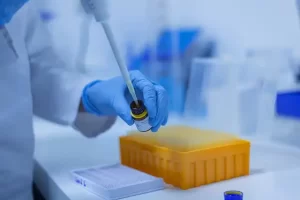SARS-CoV-2 Coronavirus Can Directly Attack Coronary Arteries
- Paternal Microbiome Perturbations Impact Offspring Fitness
- New Report Casts Doubt on Maradona’s Cause of Death and Rocks Manslaughter Case
- Chinese academician unable to provide the exact source of liver transplants
- Early Biomarker for Multiple Sclerosis Development Identified Years in Advance
- Aspirin Found Ineffective in Improving Recurrence Risk or Survival Rate of Breast Cancer Patients
- Child Products from Aliexpess and Temu Contain Carcinogens 3026x Over Limit
Research Finds SARS-CoV-2 Coronavirus Can Directly Attack Coronary Arteries
- AstraZeneca Admits for the First Time that its COVID Vaccine Has Blood Clot Side Effects
- Was COVID virus leaked from the Chinese WIV lab?
- HIV Cure Research: New Study Links Viral DNA Levels to Spontaneous Control
- FDA has mandated a top-level black box warning for all marketed CAR-T therapies
- Can people with high blood pressure eat peanuts?
- What is the difference between dopamine and dobutamine?
- How long can the patient live after heart stent surgery?
Research Finds SARS-CoV-2 Coronavirus Can Directly Attack Coronary Arteries
A study funded by the National Institutes of Health (NIH) in the United States has found that SARS-CoV-2 can directly infect coronary artery tissue and increase inflammation in atherosclerotic plaques, which may be a reason for the increased risk of heart attacks and strokes following COVID-19.
In severe cases, a strong inflammatory response throughout the body may be one of the contributing factors to increased risk. However, it is not yet clear whether the SARS-CoV-2 virus responsible for COVID-19 also directly affects blood vessels.

To find answers, a research team led by Dr. Chiara Giannarelli from the New York University School of Medicine, funded by the NIH, analyzed coronary artery tissue samples from eight individuals who died of COVID-19 between May 2020 and May 2021. The research results were recently published in the “Nature Cardiovascular Research” journal.
The research team found SARS-CoV-2 viral RNA in the coronary artery tissue of all patients. They found more viral RNA in the arterial walls compared to the surrounding fat tissue. Many of the infected cells were macrophages, a type of white blood cell capable of engulfing pathogens. The more macrophages there were, the more viral RNA was present in the samples.
Atherosclerosis is a disease in which plaques composed of fat, cholesterol, and other substances build up, leading to narrowing of the arteries. This narrowing restricts blood flow and, if the plaque ruptures, can lead to blood clots, resulting in heart attacks or strokes. Risk factors for this condition include high blood pressure and smoking.
Macrophages also help clear cholesterol from the blood vessels. When macrophages are filled with cholesterol, they are known as foam cells. Foam cells cluster within the arteries, a hallmark of atherosclerosis. The research team confirmed that SARS-CoV-2 can infect human macrophages and foam cells in culture dishes. Foam cells are more susceptible to infection, which could explain why atherosclerosis patients are more prone to contracting COVID-19.
In both cell types, infection depends on a protein called neuropilin on the cell surface. Inhibiting the binding of the virus to neuropilin reduces infection.
Infection triggers various inflammatory pathways in macrophages and foam cells. These cells also release molecules known to cause heart attacks and strokes. In arterial plaques removed from patients, researchers observed an inflammatory response after SARS-CoV-2 infection, similar to what was seen in cultured cells.
The research findings suggest that SARS-CoV-2 may increase the risk of heart attacks and strokes by infecting arterial wall tissue, including the associated macrophages. This results in inflammation of atherosclerotic plaques, leading to heart attacks or strokes.
“These results reveal a possible connection between pre-existing heart issues and the virus responsible for COVID-19. The immune cells most involved in atherosclerosis may serve as a reservoir for the virus, allowing it to persist in the body,” said Dr. Michelle Oliver from the National Heart, Lung, and Blood Institute at the NIH. “From the early days of the pandemic, we knew that people who contracted COVID-19 had an increased risk of cardiovascular disease or stroke within the year following the infection. We believe we have found one of the reasons.”
Looking ahead, the authors plan to further investigate potential links between arterial infection and Long-COVID. They also aim to determine whether their research findings apply to newer SARS-CoV-2 variants.
Research Finds SARS-CoV-2 Coronavirus Can Directly Attack Coronary Arteries
(source:internet, reference only)
Disclaimer of medicaltrend.org
Important Note: The information provided is for informational purposes only and should not be considered as medical advice.



